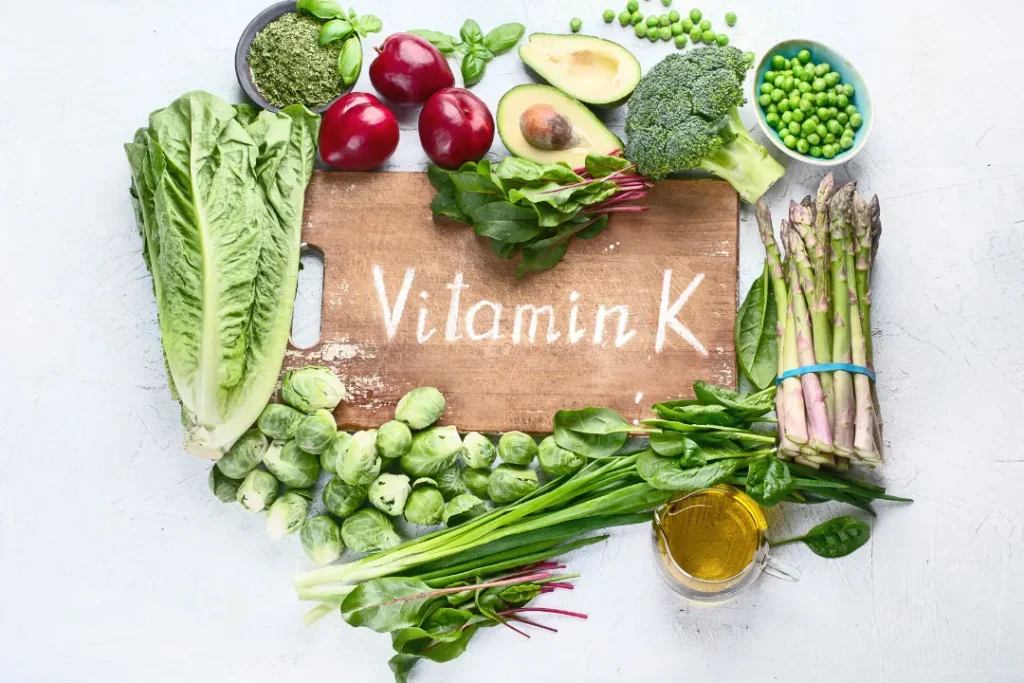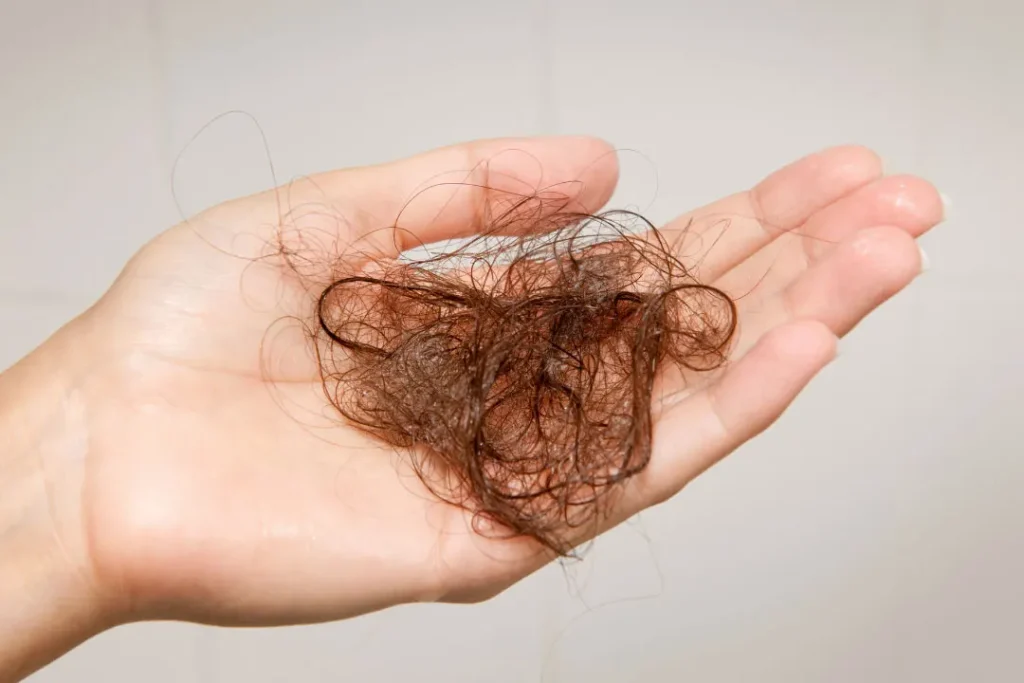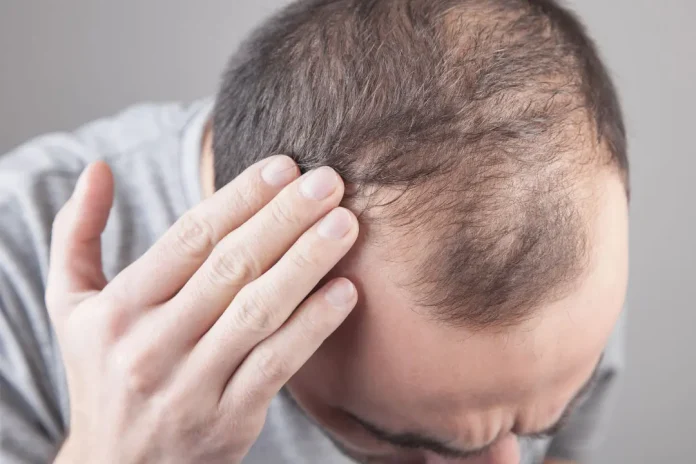Hair loss can be a distressing experience, and understanding its underlying causes is crucial for effective solutions. Studies have shown that deficiencies in certain vitamins can contribute to hair loss or thinning. See what the science says about the connection between vitamin deficiency and hair loss.
It can often feel like society emphasizes youth, and hair is one of the many signifiers of someone’s age. While people with thick hair receive favorable public perception, those dealing with thinning hair could face the negative stigma that comes with age. However, hair loss isn’t untreatable.
You May Also Like:
Devotion Protein Powder vs Nuzest Clean Lean Protein
Nu Biome Gut Health vs Medicine Man Plant Co.’s The Gut Pill
One of the causes of thinning hair and hair loss is that our bodies may lack the necessary vitamins. Vitamins play a crucial role in hair growth, and as we age, our bodies cannot produce enough vitamins to maintain our hair and skin. Below are some vitamins that can be part of an all-natural way to regrow healthy hair and help restore confidence.
Vitamin deficiency and hair loss:
Vitamin B3
B vitamins are the most critical when looking for a natural way to restore thinning hair. These vitamins can help nourish the scalp and strengthen hair follicles.
Vitamin B3, known as niacin, promotes blood circulation to the scalp. Poor scalp circulation often leads to a dry scalp and damaged hair. Niacin allows better blood flow that can help moisturize your hair cells.
This improved circulation also drives essential nutrients to your hair follicles to help grow hair. One test showed that niacin could aid in significant hair increase in a double-blind study involving six subjects with female pattern alopecia.

Vitamin deficiency and hair loss:
Vitamin B5
Vitamin B5 is an essential vitamin that strengthens the hair follicle roots while increasing the hair’s elasticity. This elasticity makes hair strands less prone to breakage and decreases dandruff.
Hair dryers and excessive heat could also be a cause of hair loss. Over time, exposure to heat can cause damage to the structure of hair strands. Vitamin B5 helps rebuild the hair shafts, reducing the effects of heat damage for those who blow dry their hair frequently.
Vitamin deficiency and hair loss:
Vitamin B6
One of the ways B vitamins help with hair growth is how they interact with the proteins in our body. The protein keratin forms our hair, skin, and nails and is such a vital part of our hair that many treatments focus on this protein to help produce thicker hair.
Vitamin B6 helps metabolize amino acids, which are the building blocks of proteins. These amino acids then go on to support the production of keratin. Vitamin B6’s effects on keratin help the body produce stronger hair and reduce hair loss.
Vitamin deficiency and hair loss:
Vitamin K
What makes vitamin K crucial for hair is its function in moving calcium. Calcium is one of the minerals vital to your hair’s health because it can increase hair’s strength. According to one study, feeding mice with alopecia a diet high in calcium reduced the chances of passing the disorder to their offspring.
While vitamin D helps increase the amount of calcium in the body, vitamin K can help circulate it throughout the body, including the hair follicles. This critical function makes stronger hair less prone to breaking that can grow longer.

Vitamin deficiency and hair loss:
Vitamin E
Vitamin E is similar to niacin in that it also helps blood circulate in the scalp, bringing more nourishment to the hair. However, vitamin E also aids in hair growth by protecting the strands from oxidative damage.
Oxidative damage results from aging and occurs when the body cannot counteract the effects of damaged cells. People can combat the effects of aging and hair loss by looking for aids and treatments that increase their daily intake of vitamins and minerals. More Hair Naturally is one brand that uses an all-natural formula to give users confidence through healthier hair.
More Hair Naturally’s Starter Kit Plus targets the scalp with vitamins B3, B5, B6, E, and K, alongside a regimen of stem cells and probiotics to help fight hair loss. Some of the ingredients used in the Starter Kit Plus formula are:
- Adipose-Derived Stem Cell (ADSCs) – help regenerate cells in the scalp and reactivate hair follicles.
- Panax ginseng – antioxidative properties that help fight the effects of aging.
- Glycerin – helps prevent dry scalp and reduces dandruff.
- Aloe vera extract – contains vitamins A, C, and E, which all work towards giving users stronger and healthier hair.
- Pea sprout extract – improves hair density and prolongs the life cycle of hair.
- Peptides isolated from azalea flowers – help all parts of the hair’s strands take in nutrients and use them for energy.
More Hair Naturally came about as a response to a hair regrowth industry that often expects people to take medications to see results or to be dependent on the constant use of hair products for results. Mahryah Shain, CEO of More Hair Naturally, states, “We’re not systemic, and we’re all-natural, so we’re not going to interfere with any medication people are on. A lot of times, people can’t take the drug products because it can interfere with their medications … We want people to realize you don’t have to sacrifice your health to have hair and that you should never be dependent on anything for the rest of your life. ”

Vitamin deficiency and hair loss:
A holistic approach
Your confidence and self-image do not need to suffer from thinning hair. A reduction in hair growth is a natural part of our body as we age, but it is easy to treat. Knowing how specific nutrients affect the body is one of the simplest ways to combat thinning hair and the effects of aging.
Optimizing vitamin intake through diet modifications and, when needed, supplementation can be a valuable part of a holistic strategy to promote hair health. Individuals can promote better hair growth by understanding the role of vitamins in the scalp. The sooner you take action with the right products, the more likely you are to achieve lasting results.
For further reading:
National Library of Medicine: The Role of Vitamins in Hair Loss: A Review
National Library of Medicine: Hair-Growth Potential of Ginseng and Its Major Metabolites: A Review on Its Molecular Mechanisms
CNET: 7 Vitamins That Can Help Restore Your Hair Loss
Important Note: The information contained in this article is for general informational purposes only, and should not be construed as health or medical advice, nor is it intended to diagnose, prevent, treat, or cure any disease or health condition. Before embarking on any diet, fitness regimen, or program of nutritional supplementation, it is advisable to consult your healthcare professional in order to determine its safety and probable efficacy in terms of your individual state of health.
Regarding Nutritional Supplements Or Other Non-Prescription Health Products: If any nutritional supplements or other non-prescription health products are mentioned in the foregoing article, any claims or statements made about them have not been evaluated by the U.S. Food and Drug Administration, and such nutritional supplements or other health products are not intended to diagnose, treat, cure, or prevent any disease.
